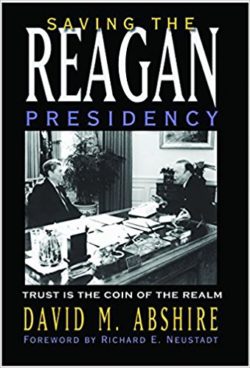In Scandal or Crisis, Character is the Still the Coin of the Realm
These are tough times. Unstable times. Uncertain times that will test the vision, spirit, and mettle of everyone – in life and in business.
These are times when things could go radically and drastically wrong, or … a person or persons will step up, and by force of one character trait – mold the future direction of our world in a positive way. It’s a test really.
Do we have what it takes to pass?
Do you?
Sometimes you’re confronted with a scandal or crisis, not of your own making and that becomes your true test of character … especially when everyone in the world is looking.
“Character is like a tree and reputation like its shadow. The shadow is what we think of it; the tree is the real thing.”
– Abraham Lincoln
FLUNKING THE TEST
When the test of character is flunked …
- families and friendships can be ruined,
- businesses destroyed, and
- governments brought down.
The story and interview that follows are not about avoiding a scandal or crisis, but how one American President through the strength of character dealt with a situation that threatened his presidency, his reputation, his place in history and America’s credibility.
AN AFFAIR SHAKES THE PRESIDENCY

In the mid-1980’s, President Ronald Reagan’s presidency was threatened by a looming scandal – The Iran-Contra affair. His reputation and the ability to lead the United States forward in hopes of ending the Cold War were in imminent danger.
At that critical moment, President Reagan decided to call the Ambassador to NATO, Dr. David M. Abshire, back to serve in the cabinet as Special Counselor.
TRANSPARENCY EXPEDITIOUS (not a disease)
Dr. Abshire’s mission?
Ensure a full investigation of the sale of arms to Iran in exchange for freeing American hostages and the subsequent funneling of those funds to Nicaraguan rebels. And (here’s the tough part) do it expeditiously and transparently, to restore the confidence of the nation in the shaken Reagan presidency.
That phrase sound familiar? To restore the confidence of a nation?
WHY DR. ABSHIRE?
Character. Competence. Commitment. Objectivity. Experience.
“The best executive is the one who has sense enough to pick good men to do what he wants done, and self restraint to keep from meddling with them while they do it.” – Theodore Roosevelt
Dr. Abshire co-founded the Center for Strategic and International Studies in Washington, D.C. His extensive experience, including service as Assistant Secretary of State and later as NATO Ambassador, gives him a perspective both unique and insightful. He was the president of the Center for the Study of the Presidency and also president of the Richard Lounsbery Foundation.
Dr. Abshire was Ambassador to NATO where in reaction to the threat posed by Soviet SS-20 missiles. Dr. Abshire also was the United States point man in Europe for deployment of Pershing and Cruise missiles. It was this NATO success that convinced the Soviets to sign the historic INP Treaty and withdraw their missiles. Ambassador Abshire initiated a new conventional defense improvement effort so that NATO would not have to rely heavily on nuclear weapons. For this, he was given the highest Defense Department civilian award – its Distinguished Public Service Medal.
Dr. Abshire has received the John Carroll Award for outstanding service by a Georgetown University alumnus; the Distinguished Graduate Award of the United States Military Academy; the 1994 U.S. Military Academy’s Castle Award; the Gold Medal of the Sons of the American Revolution; the Baylor Distinguished Alumni Award; the Order of the Crown (Belgium); Commander de l’Ordre de Leopold (Belgium); the Medal of the President of the Italian Republic, Senate, Parliament and Government; Grand Official of the Order of the Republic of Italy; Order of Diplomatic Service Merit Heung-In Medal (Korea); the insignia of the Commander, First Class, Order of the Lion of Finland; in 1999, the Order of the Liberator (Argentina); and in May 2001, the Order of the Sacred Treasure Gold and Silver Star (Japan). In addition to the Department of Defense Medal for Distinguished Public Service, he was awarded the Presidential Citizens Medal.
Dr. Abshire received his bachelor’s degree from the U.S. Military Academy at West Point.
In the Korean War, he served as a platoon leader, company commander, and a division assistant intelligence officer. He received The Bronze Star with Oak Leaf Cluster with V for Valor, Commendation Ribbon with medal pendant, and Combat Infantry Badge. He was awarded his Ph.D. in History from Georgetown University with honors (Gold Key Society). He received a Doctor of Humane Letters from Virginia Theological Seminary in 1992 and a Doctor of Civil Law, honoris causa, from the University of the South in 1994.
SAVING THE REAGAN PRESIDENCY
In 1987, Dr. Abshire served as a Special Counselor to President Reagan with Cabinet rank, to coordinate the Iran-Contra investigation, and had authority to meet with the President alone.
THE INTERVIEW
Steve: What was your most memorable moment in the crisis with President Reagan that best showcased his strength of character and determination?
Dr. Abshire: I would say that my most memorable moment with President Reagan was the initial phone conversation that I had with him in December 1986. At the time, I was at Truman Hall, my NATO Ambassadorial residence, and I had read all about the trouble the President was in regarding the sale of arms to Iran for hostages. The President requested I come back to Washington to be his special counselor – with cabinet rank – during this crisis and that I would report directly to him.
There are two very important things about this phone call that show Reagan’s strengths and character as a leader:
The fact that he called me personally and did not leave it to one of his staffers shows just how serious of a situation he was in, and just how important it was to him personally to climb out of this dilemma.
Other leaders in his position – who did not care about setting things right – would have left this job to somebody else. The fact that he didn’t says volumes about his determination to get ahead of this crisis.
The fact that he even requested a Special Counselor to help facilitate the crisis from the White House – with the job of getting everything out with no executive privilege – shows that he was concerned with setting things right.
President Reagan was concerned with his reputation as a leader and didn’t want to offer an opportunity for anybody to impugn his integrity and character saying that there was a cover-up.
Steve: What was the most important thing you learned from this experience?
Dr. Abshire: The most important thing I learned is that when you get in a hole, do not dig it deeper; come clean, get outside help, and climb out of it.
If you tell the truth, you don’t have to remember anything.
– Mark Twain
Steve: Examples?
Dr. Abshire: There are many instances of presidents – take Richard Nixon and Bill Clinton for example – that dug their hole deeper until they couldn’t get out.
Nixon did not know about the initial Watergate break-in, but he covered up the investigation.
Clinton, instead of admitting to his infidelity at the onset – which is not a crime, made the mistake of lying to a grand jury to hide it from his wife and family and came very close to impeachment.
Reagan, on the other hand, took the necessary steps to save his presidency, which leads me to my second point: the creation of the Tower Board.
Reagan empowered a bipartisan committee to investigate his involvement in the Iran-Contra scandal. This step was essential to show the public and Congress that he was serious about investigating any wrongdoing that may have happened on his watch. The President could not get out of his hole or create the Tower Board without “reaching out” – both to myself and to other Members of Congress.
By reaching out and involving Congress in the progress of the investigation, the President gave them a stake in its outcome and also a feeling that they were intimately involved in the process as a whole.
Steve: What surprised you most about this experience with President Reagan?
Dr. Abshire: I was most surprised by the practical nature of the President. For all talk of a Reagan and Conservative Revolution in the early 1980s with its anti-Communist sentiments, I was pleasantly surprised by Reagan’s philosophy – he was not an ideologue. I was impressed with his ability to shift America’s strategy to face the shifting currents of the times and not to strictly adhere to any ideological plank.
Steve: Example?
Dr. Abshire: A fine example of this characteristic was when – after he had referred to the Soviet Union as the “Evil Empire” – he came to an agreement with Mikhail Gorbachev at Reykjavik, Iceland to reduce nuclear weapon stockpiles and to limit production of entirely new types of nuclear weapons.
“Sow a thought; reap an action.
Sow an act; reap a habit.
Sow a habit; reap a character.
Sow a character; reap a destiny.”
– Charles Reader
Steve: So, in the end – for pauper, prince, president or pope …
Dr. Abshire: In scandal or crisis, character is always the coin of the realm.
###



